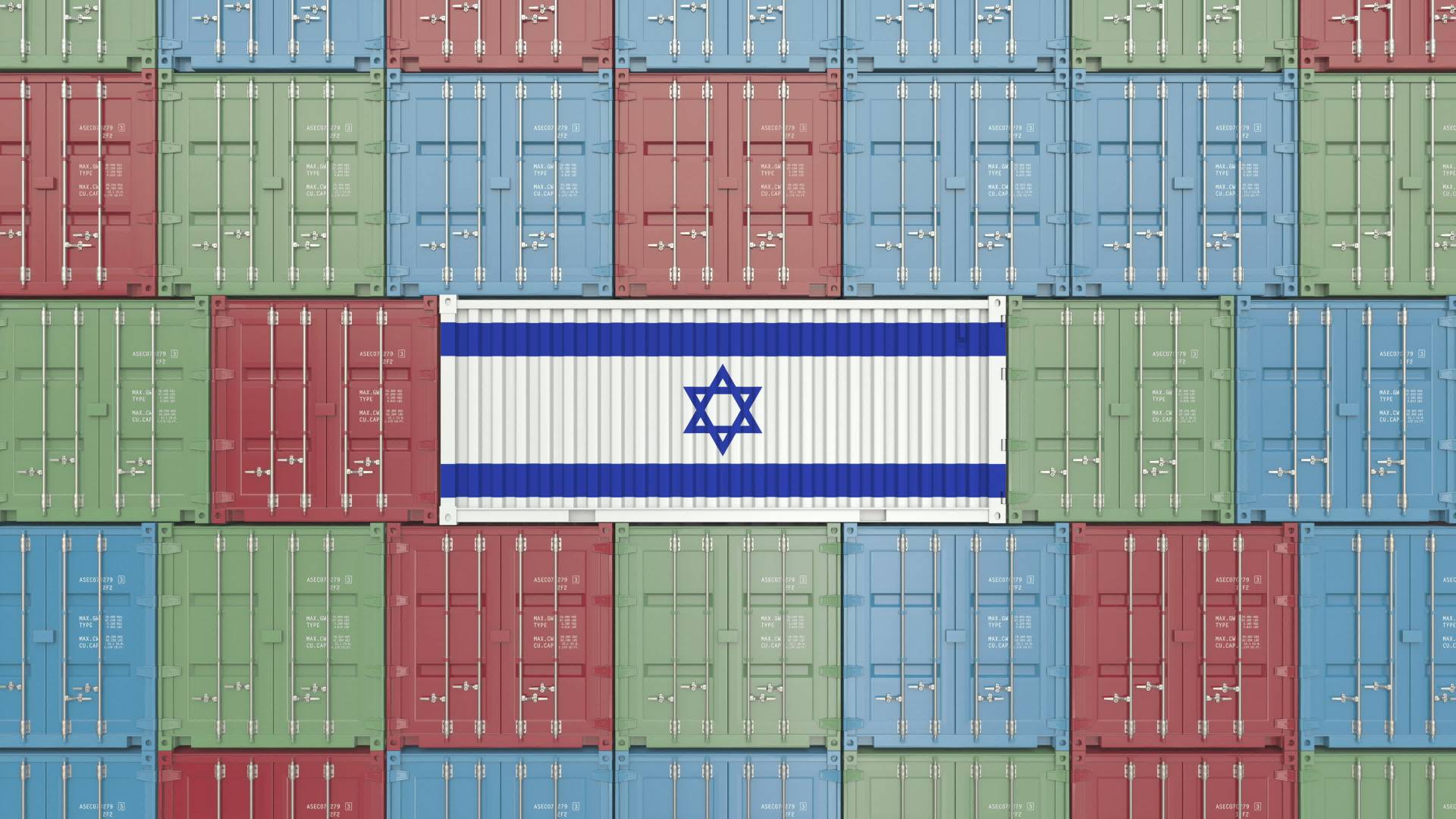Israel is both the “sole democracy in the Middle East” and a hub of high-tech industry. It has a reputation for bold innovation. The embattled nation is clearly outcompeting all other rivals for an imaginary gold medal in this year’s Geopolitical Olympics. It has already broken all recent records in the decimation by bombing of a civilian population.
But Israel is also achieving excellence on two other fronts. The first is ethnic cleansing, thanks to a strategy aiming at the removal of an existing population from a land it has occupied for millennia. The second is revealed in an article that appeared in The Israel Times on December 31, 2023, with the title: “Israel said set to replace all Palestinian workers with tens of thousands of foreigners.” In other words, a nation so successful at export needs to achieve balance with its imports.
Related Reading
And it makes a lot of economic sense. When you export an ethnic group that has played the role of productive second-class citizens within your high-powered economy, at some point you need to fill the gap. Israel’s leadership pertinently reframes the question. Why permit Palestinians to survive in Greater Israel, if the younger of the tribe — the most qualified for essential manual work — insist on being undisciplined, disobedient and disruptive?
Not only is it a no-brainer to seek ways of cleansing the landscape of their presence, the obvious solution to the loss of their manpower is to look to import the kind of third-class population that has consistently demonstrated its utility for wonderfully successful economies such as those of Israel’s neighboring Gulf states. Qatar and the United Arab Emirates, whose native and religiously homogeneous indigenous communities constitutes only a little over 10% of the total population, have proved that small privileged minority can harmoniously manage a civilization and earn the world’s admiration.
The government is now asserting its intention not to allow Palestinian workers back even after the current war ends. The logic is crystal clear. According to The Israel Times, “Israel plans to permanently replace all Palestinian laborers with foreign workers, in a major, ambitious initiative aimed at ridding the country of a perceived security threat, the Kan public broadcaster reports.”
Today’s Weekly Devil’s Dictionary definition:
Security threat:
People unlike one’s own.
Contextual note
This should not be confused with a randomly suggested “replacement theory.” It’s the real thing, a well-articulated plan resulting from serious interministerial collaboration, worked out in precise numerical detail. “The reported plan by the finance, interior and labor ministries would see Israel bring in 25,500 workers from Sri Lanka, 20,000 from China, 17,000 from India, 13,000 from Thailand and 6,000 from Moldova,” says the Times.
Unlike most European countries and the US, who have seen powerful political movements growing to repel and reject any form of immigration, Israel is demonstrating its commitment to tolerance, diversity and its own brand of inclusion. These thousands of people from a variety of other provenances will provide a model for whatever portion of the Palestinian population is permitted to continue to reside in Greater Israel. Once the Palestinians observe, it is hoped, how peaceful it can be to simply show up for a job and earn a living without being obsessed by one’s identity, history or ancestral memory, there may come a time when they can be reintegrated into the Israeli economy.
The resourceful Israeli leadership doesn’t stop with that simple idea of importing docile populations. “Additionally, the government intends to incentivize Israelis to work in construction and agriculture, as well promoting technologies that could cut the number of employees needed in these fields.”
Now this is really insightful. There must surely be a small minority among the privileged ethnicity in Israel that will accept the kind of menial work God created darker-skinned populations to execute. Why not get them involved to pick up some of the slack? Somewhere in Israel’s hypermodern culture, the memory exists of the heroic period of Israel when people arrived in droves to work on kibbutzim and realize the romantic dream of rural socialism.
That actually seems unlikely, at least on any significant scale, as the Jewish Agency for Israel admits. “Somewhat romanticized in the past, the Kibbutz of today has evolved dramatically and the focus of Kibbutz life on society has substantially diminished.” The modern kibbutz is better adapted to organizing rave parties than promoting an idealized form of hard-working collective prosperity based on apparently discredited socialistic principles.
The second hypothesis is far more likely: that “technologies” — obviously meaning AI — will “cut the number of employees needed in these fields. That makes a lot of sense, since the focus of Israeli productivity long ago moved beyond oranges and avocadoes to producing the world’s most sophisticated software. Israel’s best-selling philosopher, Yuval Noah Harari, has been focused for a long time on the question of AI’s capacity to transform the job market. Undoubtedly, the Israeli government will seek to benefit from his wisdom.
Historical note
Commentators have noticed for decades Israel’s focus on a particular theme that has inspired political decisions made by previous generations of Israeli governments. It is parallel with US history and especially US expansion in the 19th century — in fact, Israeli leaders have frequented resonated with the idea of “manifest destiny.” Back in 1956, Moshe Dayan notably described the dominant vision of Israel’s future. “We are a generation of settlers, and without the steel helmet and the cannon we cannot plant a tree and build a home … This is the fate of our generation, the choice of our life — to be prepared and armed, strong and tough — or otherwise the sword will slip from our fist, and our life will be snuffed out.”
The similarities with US history don’t end there. Before the American Civil War and the emancipation of the slaves, many white people, including sitting and future presidents, sought to solve the problem of slavery by sending “free Black Americans to Africa through ‘colonization’,” as History describes it. In their eyes, if slavery were abolished, all the freed slaves could then return to Africa. Thanks to the ability of European and white North American nations to colonize regions of the “uncivilized” world, the American Colonization Society created a region in Africa that became known as Liberia, the destination of freed American slaves.
The Times of Israel now informs us that “Prime Minister Benjamin Netanyahu’s coalition is conducting secret contacts for accepting thousands of immigrants from Gaza with Congo, in addition to other nations.” Exporting the troublemakers to Africa seems like the right idea. If the US had done the same after the Civil War, we might never have seen the unseemly events that followed the deaths of Martin Luther King and George Floyd. Tucker Carlson’s “legacy Americans” would feel much more in control today as the nation’s political and interracial culture becomes increasingly polarized and conflictual. Life in the US might be much more harmonious.
Related Reading
Of course, there is one notable difference, despite the obvious parallel. The North American slaves were Africans, and though not many if any at all hailed from the region of Liberia, they would at least be returning to the native continent. The Palestinians are not only natives to the land from which they are to be exported. Those exporting them are in a large part from other lands.
One further irony, reported in November by the Jewish Telegraphic Agency, is worth noticing. “Dr. Arthur Rupin, the Zionist colonization expert, made the startling assertion that the Arabs of Palestine were descendants of old Palestine Jews who had been converted to Mohammedism.” So the Palestinians could be, even in their majority, the true descendants of “the people of the Bible” in whose name the state of Israel was created.
As ChatGPT would typically conclude, if asked to weigh in on this question: History is “complex and multifaceted.”
*[In the age of Oscar Wilde and Mark Twain, another American wit, the journalist Ambrose Bierce produced a series of satirical definitions of commonly used terms, throwing light on their hidden meanings in real discourse. Bierce eventually collected and published them as a book, The Devil’s Dictionary, in 1911. We have shamelessly appropriated his title in the interest of continuing his wholesome pedagogical effort to enlighten generations of readers of the news. Read more of Fair Observer Devil’s Dictionary.]
The views expressed in this article are the author’s own and do not necessarily reflect Fair Observer’s editorial policy.
Support Fair Observer
We rely on your support for our independence, diversity and quality.
For more than 10 years, Fair Observer has been free, fair and independent. No billionaire owns us, no advertisers control us. We are a reader-supported nonprofit. Unlike many other publications, we keep our content free for readers regardless of where they live or whether they can afford to pay. We have no paywalls and no ads.
In the post-truth era of fake news, echo chambers and filter bubbles, we publish a plurality of perspectives from around the world. Anyone can publish with us, but everyone goes through a rigorous editorial process. So, you get fact-checked, well-reasoned content instead of noise.
We publish 2,500+ voices from 90+ countries. We also conduct education and training programs
on subjects ranging from digital media and journalism to writing and critical thinking. This
doesn’t come cheap. Servers, editors, trainers and web developers cost
money.
Please consider supporting us on a regular basis as a recurring donor or a
sustaining member.
Will you support FO’s journalism?
We rely on your support for our independence, diversity and quality.









Comment